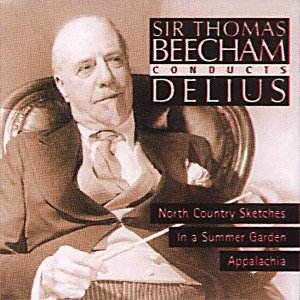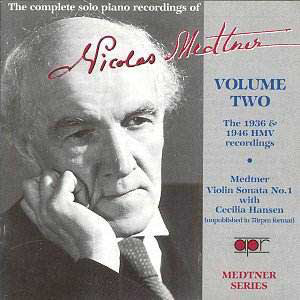 Composer: Johannes Brahms
Composer: Johannes Brahms
Works: Violin Concerto, Op. 77; Violin Concerto in E minor, Op. 64 (Mendelssohn)
Performers: Joseph Szigeti, violin; London Philharmonic Orchestra; Thomas Beecham; Halle Orchestra; Hamilton Harty
Recording: September 1933 (Mendelssohn), December 1928 (Halle)
Label: NAXOS HISTORICAL 8.110948
The violin concertos of Brahms and Mendelssohn represent pivotal moments in the development of the Romantic concerto, each reflecting distinct compositional philosophies and stylistic traits. Brahms, often considered a traditionalist among his contemporaries, imbued his Violin Concerto with a sense of weightiness and structural integrity that echoes the classical ideals while simultaneously breaking new ground. Mendelssohn, conversely, epitomizes the youthful exuberance and lyrical grace of early Romanticism. This recording, featuring Joseph Szigeti’s interpretations of both concertos under the direction of Thomas Beecham and Hamilton Harty, is a fascinating juxtaposition of these two seminal works.
Szigeti’s performance of the Mendelssohn Violin Concerto is marked by a blend of elegance and technical fluency, though it is marred by some limitations that prevent it from occupying a paramount position in the recording hierarchy. His tone, while tightly focused, reveals a certain tremulous quality in the first movement, a reminder of the challenges inherent in balancing expressiveness with technical precision. The opening, though graceful, exhibits moments where the passagework exposes a few vulnerabilities in Szigeti’s technique. In the slow movement, his use of portamenti—sliding between notes—adds an emotive quality, yet it occasionally veers toward the smeary, lacking the clarity that some of his contemporaries achieved. Nevertheless, the finale showcases Szigeti at his best, buoyed by the London Philharmonic’s crisp playing and Beecham’s unpretentious yet fervent conducting, which together create a delightful and engaging interpretation.
In contrast, Szigeti’s rendition of Brahms’ Violin Concerto stands as one of the most compelling recordings of this work. The Halle Orchestra, under Hamilton Harty, delivers a robust accompaniment, despite criticisms of a thin wind section. Notably, the orchestral textures are infused with a distinctive patina, characterized by a uniformity of portamenti that complements Szigeti’s more restrained approach. The first movement, marked by its heroic character, benefits from Szigeti’s rugged tone and his ability to maintain architectural clarity amidst the orchestral swell. Here, Harty’s direction is particularly noteworthy; his encouragement of the basses propels the music forward with a momentum that enhances the overall cohesiveness of the performance.
The second movement, “Adagio”, allows Szigeti to display his artistic maturity. His deployment of finger position changes and judiciously employed portamenti offers an exquisite insight into the emotional landscape of Brahms’ writing, revealing a depth of understanding that is both technical and interpretative. The finale brims with energy, marked by Szigeti’s robust accents and a compelling dialogue with the orchestra that culminates in an exhilarating conclusion, albeit not without moments of slight imperfection. This performance captures the essence of Brahms’ idiom, balancing lyrical beauty with the vigorous demands of the music.
Sound quality in this historical recording is commendable, preserving Szigeti’s signature split note towards the end of the Mendelssohn slow movement, allowing listeners to appreciate the nuances of his playing. The NAXOS transfer is effective, granting a clarity that enhances the listening experience, making this disc essential for both enthusiasts and scholars alike.
This recording serves not only as a testament to Szigeti’s artistry but also as an exploration of the distinct emotional and structural landscapes that Brahms and Mendelssohn navigated in their violin concertos. The juxtaposition of these performances provides invaluable insights into the interpretative choices of a great violinist, underscoring the enduring relevance of both composers in the canon of classical music. Collectively, this release stands as a significant contribution to the understanding of the Romantic concerto repertoire, with Szigeti’s Brahms capturing a particularly compelling interpretative moment that resonates with both historical significance and artistic excellence.



